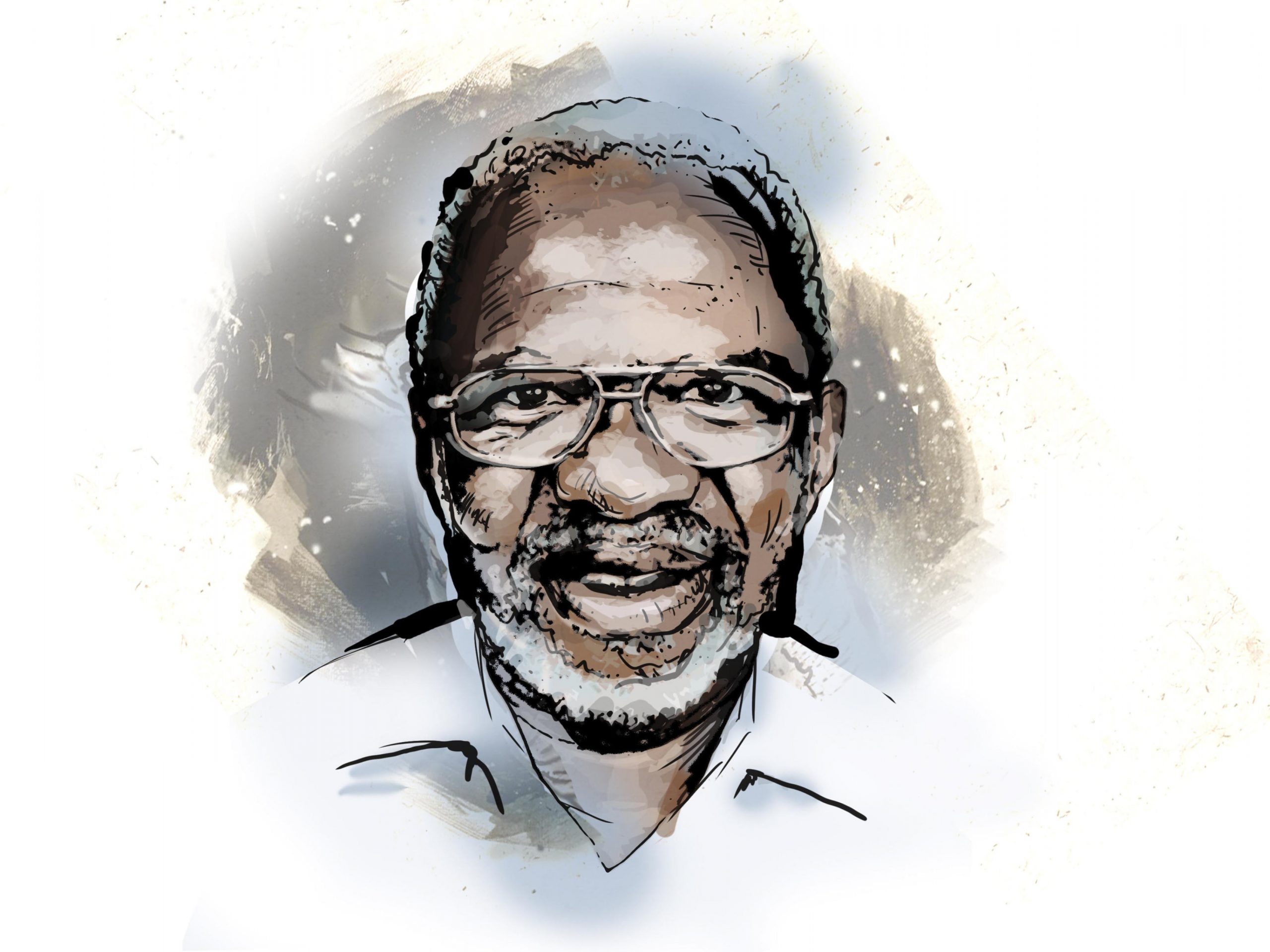Paulin Hountondji on philosophy and decolonisation
The philosopher talks to ‘New Frame’ about African philosophy, and his longstanding commitment to philosophy as a critical project.
Author:
5 April 2019

Paulin Hountondji, the Beninese philosopher, is best known for African Philosophy: Myth and Reality, first published in French in 1976 and now considered a classic text in philosophy. In his new book, Left Universalism, Africacentric Essays, the Ghanaian philosopher Ato Sekyi-Otu writes that “against the fashionable particularism of our times” Hountondji is “an unabashed adherent to universalism, universalism both as an intrinsic principle and for the sake of African necessities”.
Hountondji gave a public lecture at the Humanities Graduate Centre at Wits University on 28 February 2019. During the lecture, he repeated his call for a clear analytical distinction between African philosophy, as a critical project, and ethnophilosophy. Obakeng Africa interviewed him for New Frame after the lecture.
New Frame: What motivated you to write African Philosophy: Myth and Reality?
Paulin Hountondji: The first chapter of this book was written by the end of 1969. I was a student at the time and I had heard about the famous and celebrated book by Father Placide Tempels, Bantu Philosophy, at the beginning of my studies. I had great expectations for the book and I was disappointed. I was disappointed because when I read the book, I could not find anything that could be compared to what they call philosophy in the West.
Related article:
I expected a kind of history of philosophy of different African philosophers responding to one another. This book was not of this kind; it gave a synthesised presentation of the collective system of African thought. That is why I was disappointed. It is also why I say this is not a book about philosophy as understood in the West, it is a kind of ethnophilosophy. So my critique of ethnophilosophy originated from this initial disappointment.
NF: What path would you advise aspiring African philosophers to take for them to legitimately become African philosophers?
PH: What is needed to be an African physicist or African mathematician or African sociologist? One needs to study physics, maths or sociology. In my view, philosophy is also an academic discipline like physics, maths or sociology. So I would say the first step one must take to become an African philosopher is to study philosophy. What happens nowadays in universities, both in Africa and the West, is that students are predominantly taught the Western tradition of philosophy. It then becomes the task of the student as an individual to deconstruct this western heritage to come up with an authentic African philosophy.
Related article:
NF: Before philosophy developed in the West, what was done there was comparable to what you call ethnophilosophy. Would you not say, then, that ethnophilosophy is a necessary precondition for philosophy to be possible?
PH: Ethnophilosophy is one possible point of departure, it is a good introduction to African philosophy. But it is not the only possible introduction, there are other possible introductions. There are other ways to start doing philosophy. What happens in European and American universities is that they start by teaching the Western heritage, it then becomes the responsibility of the student to deconstruct this heritage. We cannot just ignore the Western tradition, just as you cannot ignore the Western tradition of mathematics. Philosophy ought to be recognised as an academic discipline like mathematics.
NF: It is the second time that you mention the term deconstruction. What influence did Derrida have on your work?
PH: Jacques Derrida happens to have been one of my teachers at École Normale Supérieure, along with Louis Althusser. But there are many things that I do not understand in Derrida’s work. But I was one of his students by the time he developed this notion of deconstruction. Having said so, I do not think my approach of African philosophy has anything to do with his work.
NF: What do you owe to your training in Western philosophy?
PH: As I mentioned in my lecture, my critique of ethnophilosophy is deeply rooted in my acquaintance with Descartes, Kant, Husserl. It has to do with the philosophy of consciousness, in a way. This means I could not conceive of philosophy that is not an individual exercise, a set of personal statements that can be demonstrated by the author.
NF: You mention that your primary influences are philosophers of consciousness. For some scholars Steve Biko (the father of black consciousness) is considered to be a philosopher. Do you share this opinion?
PH: I would very much like to read his work. I must confess that I am not familiar with his work. I just know that he was a brilliant activist. I am very sympathetic to black consciousness as an ideological trend. I do not think it has anything to do with ethnophilosophy, rather I think it has to do with the search for identity, both individual and collective identity.
Related article:
I would also add that ethnophilosophy and the movement of Negritude as articulated by Leopold Senghor are in fact inadequate expressions of the search for identity, which is legitimate in itself. This legitimate search must not cause us to be stuck in the past, it must preserve the future. Our identity is not behind us, it is before us; it is not only what our ancestors have given to us, it is also what we have to do, now.
NF: Focusing on the future, there is a growing demand among South African youth – the Fallist Movement in particular – that institutions and knowledge must be decolonised. What sort of intervention do you anticipate your book could have on the discourse?
PH: South Africa has a fascinating experience. I am sympathetic to the call for the decolonisation of knowledge. I would warn against the risk of self-imprisonment. Decolonising science, for instance, should not be understood to be a total rejection of the Western heritage of science, rather it should be a free and critical appropriation of whatever is useful and valuable for true decolonisation to happen.
Related article:
NF: Could you please elaborate further on your caution against self-imprisonment.
PH: We have the right to make use of all knowledge, even if it was first developed by the West. We can take that knowledge and make use of it for our own purposes. What we need is not to reinvent the wheel but rather to use it to its full potential. Knowledge in science and technology can be used to achieve new purposes that fit our vision of what a decolonised Africa must look like.
There is also the question “how do we define our aims and purposes?” that is another question entirely. Do we define it in a democratic way or is it the elite minority that decides? The issue here is building a democracy in African society. Decolonisation is also democratisation.




